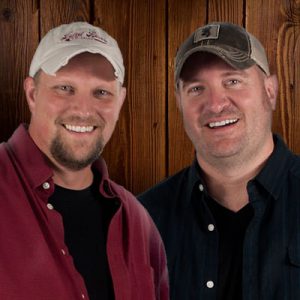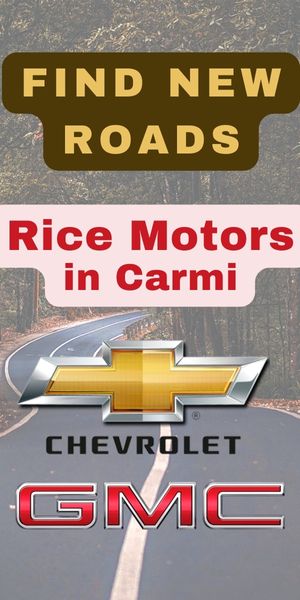For one Rend Lake College graduate, the list of personal and academic achievements goes on and on: 4.0 grade point average with four appearances on the President’s Honors list, Phi Theta Kappa (PTK) Rho Xi Honor Society member and All-USA nominee, Student Ambassador, and most-recently, world-traveler.
Drake Carter, a May 2017 graduate from Enfield, is the first RLC student to take advantage of PTK’s International Scholar Laureate Program (ISLP), which provides a select group of students with a global perspective into their specific career fields. In Australia last month, Carter turned his interest in the medical field into a reality.
Long before he ever boarded the plane to Melbourne in mid-May, Carter began his postsecondary education at RLC with a focus on chemistry as a pre-medicine major. Through his volunteer work on campus as a Student Ambassador and PTK member, he was one of two chosen to represent the college as an All-USA Community College Academic Team nominee.
It was through the PTK program that he first learned about the ISLP trip to Australia, and he said he had two motivations for jumping in head-first.
“I had two reasons. I’d never left the country and wanted to experience a new culture. I also wanted some medical-based education, because I’ve never been exposed to that,” said Carter. “It was a delegation that was medical-based. We visited museums and studied different specimens. We learned how to become a doctor in Australia.”
Carter visiting the Sydney Opera House.
(Submitted Photo)
“I didn’t [have any culture shock]. I was very surprised. I felt like I was in America, but everyone had an accent,” laughed Carter. “They were all very friendly.”
The goal for ISLP students is to see first-hand how their field is practiced in other parts of the world. They were able to learn from professionals through site visits, cultural immersions, and interaction with other students in the host country.
On his seven-day tour, Carter and the handful of other American and Canadian students spent their time balancing the visits to popular tourist attractions with stopping in on museums and medical facilities. Carter also opted for a three-day extension tour that took him to the Great Barrier Reef and on a tour of the rainforest.
“We toured the Sydney Opera House, which was really neat, and the Great Barrier Reef to snorkel. We also went to Port Douglas and had a rainforest tour,” said Carter, listing off some of the most memorable parts of the trip. “We also went to a sanctuary to pet kangaroos. They were super-friendly and you could just walk up and pet them.”
Carter holds a koala bear at Rainforestation Nature Park north of Cairns.
(Submitted Photo)
“The Great Barrier Reef was the coolest part, and my favorite thing I did. I’d never snorkeled before. I’d been in the ocean, on the beach swimming, but never out in the open ocean. I loved it,” he said. “I watch shark week every year, and we saw several sharks while we were out there, and a sea turtle too.”
“Everything about Australia is beautiful,” Carter continued. “We went to Philip Island, south of Melbourne, to watch the penguins come in from the ocean at night and go to their nests. We went to this bluff called Summerlands, and you can stand on the edge of this cliff and see coast and rocks below you. The cities themselves are super-modern and very welcoming. Nothing seemed too dangerous. Sydney has this festival called Vivid, and they light up the harbor. There are street performers and lots of things to do. It was really fun to go out at night. There were a lot of really enjoyable things for people of all ages.”
Carter poses for a shot of the ocean near Melbourne.
(Submitted Photo)
He concluded, “We had a good mix of learning and fun, which is what I really liked about the trip. On the educational side, we also visited the pathology museum and medical research centers.”
When speaking to the educational portions of his trip, Carter explained his plans to transfer to Washington University in St. Louis this fall to continue his chemistry and biomedical degrees as a pre-medicine student. From the start, he thought his plans were to become a physician, but those ideas changed during his trip.
“My favorite educational part was going to the medical research facility, the Walter and Eliza Hall Institute, and it introduced me to medical research as opposed to being a practicing physician. There, they study drug interaction and they develop new medications,” said Carter. “I’d never heard about that, and I’m now considering looking into it in college.”
The students also spent time at the Harry Brookes Allen Museum of Anatomy and Pathology, located at the University of Melbourne – another of Carter’s favorites.
“Another place was in Melbourne, the Pathology Museum, which showed a bunch of preserved specimens with different diseases and things we don’t see today, like smallpox, tuberculosis, and different kinds of cancers. Medical students in Australia use it to study; there were tables to sit at. It’s a way to see these things hands-on instead of through a book,” said Carter.
At the end of the trip, but before coming home, Carter and the other students were put into groups for presentations. They were prompted to find a problem in the health care system and propose a solution.
“On the first day, we were introduced to a final project. I did mine on the opioid epidemic in the United States. I work in a pharmacy now, and I can see how it’s a problem,” said Carter. “There was another girl in my group who is a surgical technician in a hospital, and she saw the drug addiction and opioid abuse at a higher level than me. We were graded on a one-to-five scale, and our group won the best project award.”
But there was a bigger lesson learned for Carter.
“The trip opened my eyes to the health care system in Australia. It’s like ours, socialist in nature, and everyone has insurance there. The difference is there is public and private insurance. Schooling is different from the United States too,” said Carter. “There are different ways to become a doctor in different countries, but they all need the same skills. You need to be an intellectual, not only book-smart, but also when it comes to communicating with people.”
Carter, LEFT, and other students on the trip visit the Walter and Eliza Hall Institute in Melbourne as one of their educational experiences.
(Submitted Photo)
He continued, “The trip taught me that I need to have other skills to become a doctor. You need to be smart, book-smart, but you also have to have great communication skills and networking is very important.”
Carter also urged future PTK students who might be interested in the ISLP program to take advantage of it as an opportunity for personal and professional growth.
“I think you get a lot for your money. At first, I was really nervous about not making friends. Putting yourself in another country, it helps you build relationships faster,” he said. “It’s a unique experience I couldn’t get in America. I don’t know why you would pass up a trip to Australia. It’s a great way to network, make friends, and learn about your field of study in a new country, all while having as good cultural experience.”
RLC students interested in the Phi Theta Kappa Honor Society, contact Jena Jensik at 618-437-5321, Ext. 1293. To learn more about the ISLP program, visit www.ptk.org.












